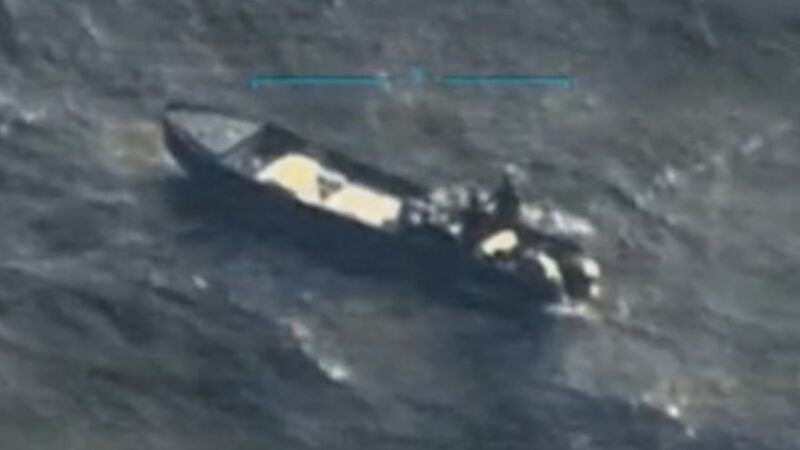Trump Allegedly Misidentified a Colombian Fisherman as a Venezuelan 'Narcoterrorist'
The potential for deadly error underlines the lawlessness of the president’s bloodthirsty anti-drug strategy.

Colombian President Gustavo Petro says one of the "narcoterrorists" recently killed by U.S. military strikes on boats in the Caribbean was a "fisherman" who had "no ties to the drug trade." That man's death, one of at least 32 ordered by President Donald Trump, therefore qualified as "murder," Petro declared on Saturday.
That much would be true even if the dead man, whom Petro identified as a Colombian citizen named Alejandro Carranza, really was smuggling drugs. Trump's new policy of summarily executing drug suspects simultaneously corrupts the mission of the armed forces, erasing the traditional distinction between civilians and combatants, and violates long-standing principles of criminal justice, imposing the death penalty without statutory authorization or any semblance of due process.
On September 15, U.S. forces blew up a boat that Trump said was "in International Waters transporting illegal narcotics," killing three men he described as "confirmed narcoterrorists from Venezuela." But according to Petro, the attack that killed Carranza happened in Colombian waters, and the target was a "Colombian boat" that "was adrift and had its distress signal up due to an engine failure."
Trump reacted angrily to that charge on Sunday, calling Petro "an illegal drug leader" who is "strongly encouraging the massive production of drugs…all over Colombia." He said the U.S. government would punish Petro by ending all "payments and subsidies" to his country.
Notably, Trump did not actually contradict Petro's claim that Carranza had been erroneously identified as a Venezuelan "narcoterrorist." And Trump has repeatedly acknowledged that his bloodthirsty anti-drug strategy could threaten innocent fishermen.
After the first strike on an alleged drug boat in early September, Trump joked about the potential for lethal mistakes: "I think anybody that saw that is going to say, 'I'll take a pass.' I don't even know about fishermen. They may say, 'I'm not getting on the boat. I'm not going to take a chance.'"
At a press conference last week, Trump again suggested that the danger posed by the boat attacks is not limited to drug smugglers. "I don't know about the fishing industry," he said. "If you want to go fishing, a lot of people aren't deciding to even go fishing."
As Sen. Rand Paul (R–Ky.) notes, "Coast Guard statistics show that about one in four interdictions finds no drugs." Given those odds, it would not be surprising if some of the individuals whom the government has "assessed" as drug traffickers did not in fact fit into that category.
Paul is among the legislators, including Republicans as well as Democrats, who have complained about the Trump administration's failure to elucidate the information on which the president has relied to identify drug smugglers. By deciding to unilaterally kill criminal suspects rather than going to the trouble of arresting and charging them, Trump has dispensed with the need to present any evidence at all.
Trump claims drug traffickers are "murdering" Americans because some of their customers—about 82,000 last year—die after consuming their products. By the same logic, alcohol producers and distributors, who supply a product implicated in an estimated 178,000 deaths a year in the United States, likewise are guilty of murder.
Contrary to that argument, the government did not treat booze merchants as murderers even during national alcohol prohibition. And under current law, the death penalty generally is not available in drug trafficking cases, even with a trial and conviction.
The Trump administration also argues that the U.S. government is engaged in an "armed conflict" with drug cartels, which makes the boat strikes consistent with the law of war. That claim, Cardozo Law School professor Gabor Rona says, is "utterly without precedent in international law."
Geoffrey Corn, formerly the U.S. Army's senior adviser on the law of war, agrees. "This is not stretching the envelope," he told The New York Times. "This is shredding it."
Trump, in short, is killing people without a legal justification. There is a word for that.
© Copyright 2025 by Creators Syndicate Inc.


Show Comments (120)